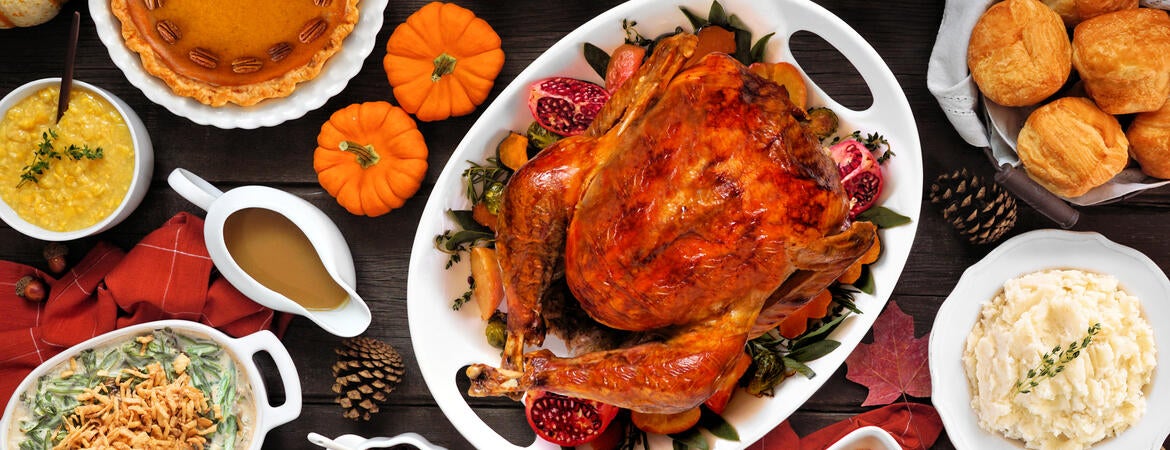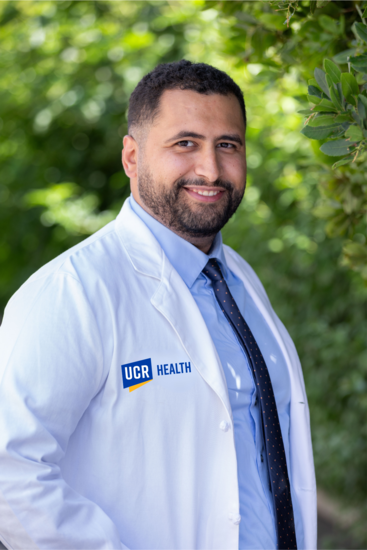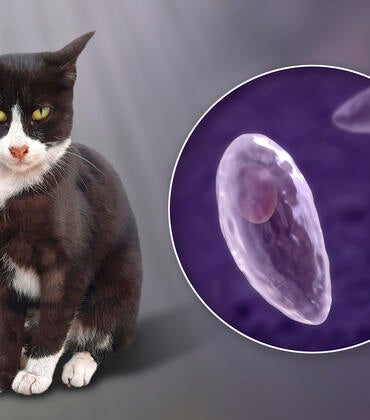
Thanksgiving is a time to gather with loved ones, give thanks, and savor the flavors of the season. But for anyone striving to eat heart-healthy, the holiday can present some challenges. With buttery sides, decadent desserts, and generous portions, it’s easy to overindulge. The good news is that with a few mindful choices, it’s possible to enjoy a festive meal without compromising heart health. From smart ingredient swaps to balanced portions, a heart-friendly Thanksgiving is both achievable and satisfying.
Dr. Ramy Sadek, a board-certified cardiologist practicing at UCR Health in Riverside, California, offers advice on making good choices at Thanksgiving. Originally from Egypt, he earned his medical degree from Oregon Health & Science University and completed his internal medicine residency at UCLA-Olive View. He completed his cardiology fellowship, including chief cardiology training, at Southwest Healthcare MEC. He is a health sciences assistant clinical professor in the UCR School of Medicine.
Sadek’s clinical interests include preventive cardiology, advanced cardiac imaging, and patient-centered care. He is certified in internal medicine, adult echocardiography, cardiovascular computed tomography, and nuclear cardiology, along with advanced training cardiac MRI.
Q: What are some practical portion-size guidelines people can follow to enjoy Thanksgiving foods without overloading on calories or sodium?
As a cardiologist, I often tell my patients that balance is more important than restriction. A simple guide is to fill half your plate with vegetables, a quarter with lean protein like turkey, and a quarter with starches. Using a smaller plate and taking a brief pause before seconds helps you enjoy the meal without excess sodium or calories.
Q: What are some easy ingredient substitutions that make traditional dishes — like stuffing, mashed potatoes, or desserts — more heart-friendly?
Small swaps can make a big impact. Using whole-grain bread for stuffing, olive oil instead of butter, and low-sodium broth all can help in making the meals more heart-friendly. In desserts, try fruit-based fillings or lighter toppings like nuts.
Q: If people want to enjoy a few indulgent foods, what’s the best way to balance them throughout the day to minimize heart strain or blood sugar spikes?
I encourage patients not to skip meals before a big holiday dinner. Eating a light, protein-rich breakfast helps steady blood sugar and prevent overeating later. Stay hydrated, enjoy indulgences mindfully, and take a short walk afterward; it aids digestion and helps keep blood pressure and glucose levels more stable.
Q: How much alcohol, if any, is safe for heart health during a holiday meal, and are some types (like red wine) beneficial?
Moderation is key. Up to one drink per day for women and two for men is considered safe for most adults. But excess alcohol can increase the risk for blood pressure and arrhythmias. If you don’t already drink, there’s no reason to start for heart health.
Q: Are there specific post-meal habits — like walking, hydration, or timing medications — that can help protect heart health after a large Thanksgiving meal?
After a heavy meal, a gentle walk, even for 10 to 15 minutes, can help with digestion and lower post-meal blood sugar. Drink plenty of water to offset sodium, avoid lying down right away, and take any heart medications as prescribed.
Header image credit: jenifoto/iStock/Getty Images Plus.




